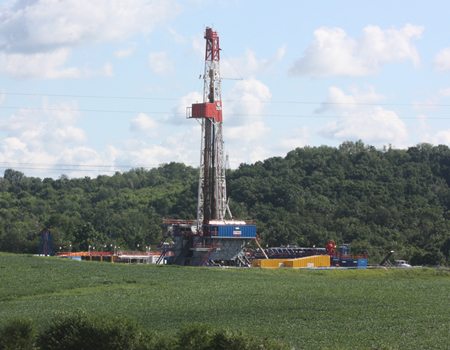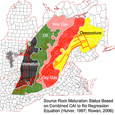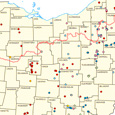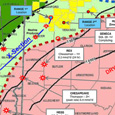This Week’s Most Important Shale Gas Stories (10/06)
Monday, October 7, 2013

Here’s this week’s most important shale gas stories:
( 1 ) Marcellus Gas Facilities are Evaluated Individually for Pollution
According to the Pittsburgh Post-Gazette, more than 450 natural gas compressor stations and processing plants have been built in Pennsylvania since the Marcellus Shale development kicked off in 2008.
Those compressor stations and processing plants create pollution, but the Post-Gazette reports that collectively the facilities would be considered a “major source” of pollution, but the Pennsylvania Department of Environmental Protection assesses each site individually.
Read it:
“There are a lot of shale gas sources right now with emissions just below the 100-ton-per-year ‘major source’ threshold,” said James Duffy, an attorney with the Clean Air Council. “They’re treated as minor sources. But put together, they are major sources and the people living next to them are receiving major doses of pollution. They should demand a remedy. And that would be emissions reductions befitting a major source.”
Read more about how Pennsylvania is approaching the issue at Post-Gazette.com.
» Via: Pitttsburgh Post-Gazette › Marcellus gas facilities, near to one another or even linked, are evaluated individually for pollution
( 2 ) How Much Wastewater is Chesapeake Recycling?
Wastewater from fracturing sites has been a hot-button topic recently, with the discovery that one Pennsylvania river is now slightly radioactive because of a wastewater treatment facility nearby.
The Akron Beacon Journal contacted Chesapeake Energy, Ohio’s most vested driller, to see how much of its water is recycled. The answer? According to a Chesapeake spokesman, 88 percent.
According to the Beacon Journal, Chesapeake offered little else. There were no volume estimates or answers to where the company is recycling its water.
» Via: The Akron Beacon Journal , Chesapeake Energy offers little data on wastewater recycling
( 3 ) Wastewater Pits Coming to Ohio
According to the Youngstown Vindicator, Ohio regulators are poised to approve large, centralized impoundments to hold fracking wastewater, a water-recycling technique that is widely used in other states.
The impoundments are now banned in Ohio.
Read it:
“…effective Jan. 1, the centralized impoundment pools will be authorized by the Ohio Department of Natural Resources as part of a regulatory change state legislators made in the biennial budget bill signed in June.
Changes to the law likely came after input from the industry. Operators consider centralized impoundments a key to further developing the Utica Shale play.”
The oil and gas industry uses impoundments to limit the transportation of wastewater. Wastewater is stored in the impoundments, large pond-like structures that can be as big as football fields.




